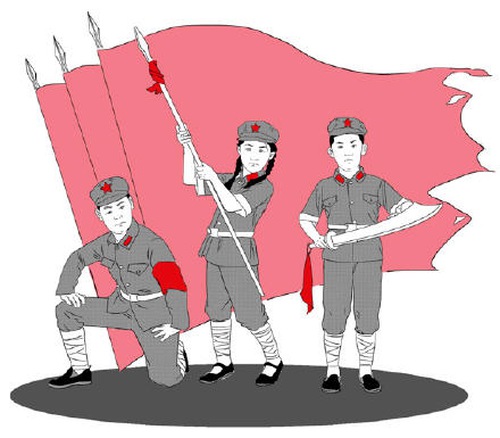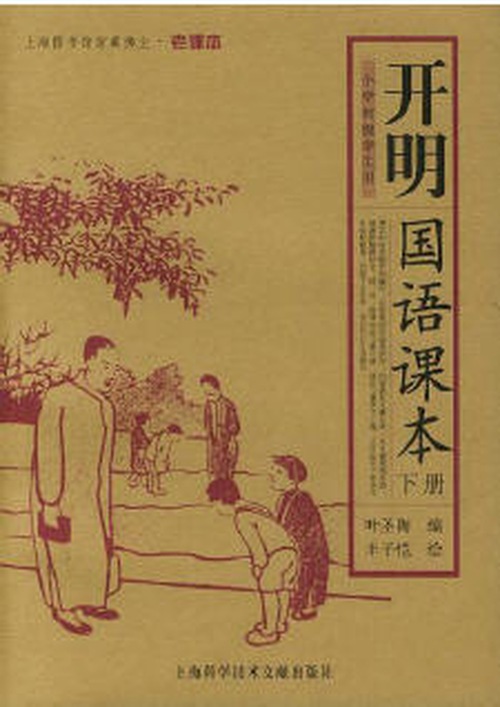(Minghui.org) Xie Taijie, a scholar in the Qing Dynasty, compiled a book called Xiao Xue Shi (Elementary School Poems). The poems covered topics from moral principles and ethics to good manners, and were written in plain language and easy to understand.
Here are a few examples.
Dignity and Respect
Dignity and respect make one strong,recklessness and laziness leave one with uncertainty;The path diverges here for a gentleman and a scoundrel,with differences growing larger thereafter.
In Private
No acting against conscience even in private,because the divine is observing and examining;As soon as one’s thought emergesit is already known by the divine.
Modesty
A gentleman is always modest,since arrogance and conceit belong to a scoundrel;If one makes mistakes and fails to admit,it will ruin one’s entire life
No Improper Behaviors
Improper behaviors related to sex or morality,do not belong to a human being;Living like a jade with no blemish,one does not deviate from conscience even a little.
Textbooks Used Before Communist Rule
Unlike the textbooks now used in China under communist rule, past education materials focused on moral standards. By telling students what is good and bad, they explained what could be done and what could not be done. This approach continued until the early 1900s.
Textbooks used in the Republic of China (renamed the People’s Republic of China in 1949) focused on moral values and aesthetics. Many renowned scholars contributed to this, including Cai Yuanpei, Ye Shengtao, Feng Zikai, Zhu Ziqing, Xia Mianzun, Zhang Yuanji, Wang Yunwu, Gu Jiegang, and Chen Heqin. Over 100 sets of elementary school textbooks were compiled between 1912 and 1949.
Many textbooks also had amusing content tailored for children. In the above book, published in 1917, the cover picture showed the dialog from one lesson:
“Yong’er’s father said, “If a guest comes to our home, please first ask about his last name.” Yong’er nodded.
When a neighbor, Mr. Xu, came for a visit the following day, Yong’er asked, “Mr. Xu, could you tell me your last name?”
Violence and Lies in CCP Textbooks
Unlike textbooks of the past, the education materials after the Chinese Communist Party (CCP) took power in 1949 changed dramatically. More specifically, they made up countless lies to praise the CCP and deceive people. For example, the Red Army’s retreat during the 1934 Chinese Civil War was referred to as the “glorious” Long March; the CCP’s profiting through opium plantations was labeled “farming;” the People’s Liberation Army (PLA) was falsely praised as the primary forces opposing the invading Japanese instead of giving credit to the Kuomintang as recorded in history.
The lies were propagated generation after generation. After the CCP started to persecute Falun Gong in 1999, it added defamatory propaganda, such as an image of the staged Tiananmen Square Self-Immolation Incident, to textbooks (an example is shown in the link above) to deceive the general public and incite hatred of the practice.
The CCP’s core doctrine of brutality and hatred continues to be disseminated as part of its ongoing brainwashing. During the recent pandemic, students in some parts of China were dressed in Red Army clothing while doing battlefield drills to sustain the symbol of the Red Terror. During the 100th anniversary of the CCP’s establishment in 2021, officials required all kindergartens and primary and secondary schools to review the Party history and follow the Party line so that the “Red Mountains and Rivers will not change their colors.”
 Drawing of the young “Red Guards”
Drawing of the young “Red Guards”
The CCP launched an “Anti-Espionage Law” in 2023, which was also incorporated into school curricula. Students were encouraged to observe their families and report any suspicious activities to authorities. In this context, the tragedies that the Red Guard perpetrated in families during the Cultural Revolution will likely be repeated.
This is not surprising, given the nature of the CCP. As long as the CCP continues to push the communist doctrines, bullying, killing, causing suicides, and “people disappearing” in China could become inevitable.
By rejecting the CCP and embracing traditional values, such as the principles of Truthfulness, Compassion, and Forbearance, Chinese people and the rest of the world will have a better future.
Copyright © 2024 Minghui.org. All rights reserved.
Category: Traditional Culture










